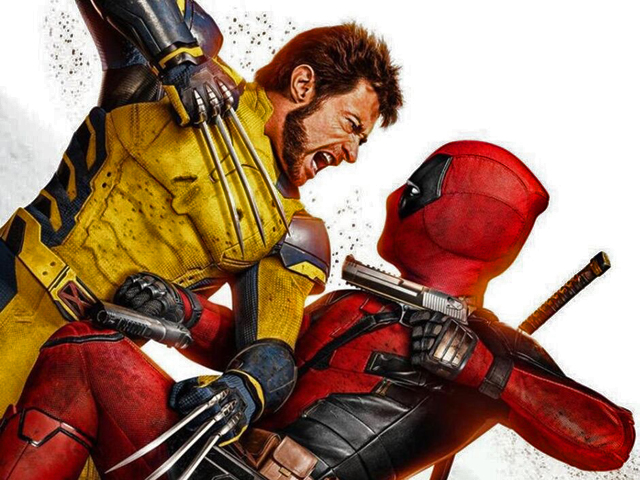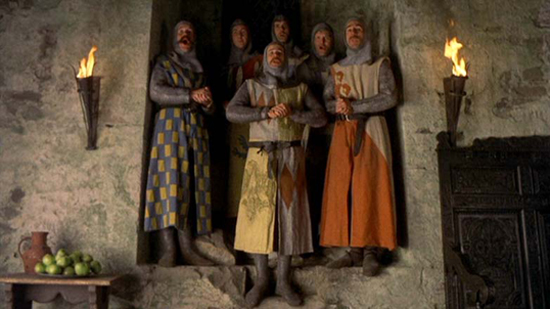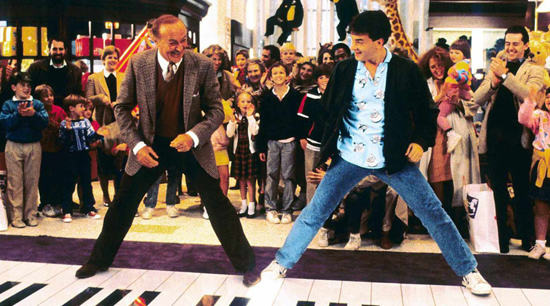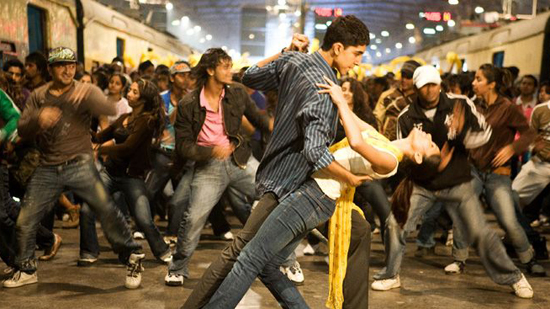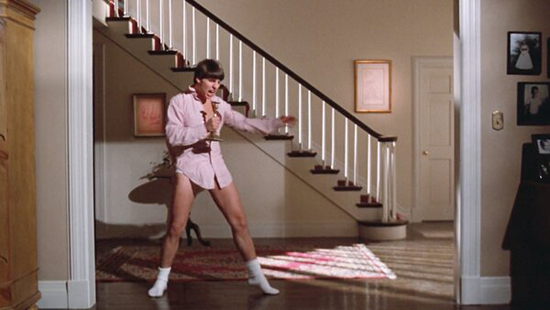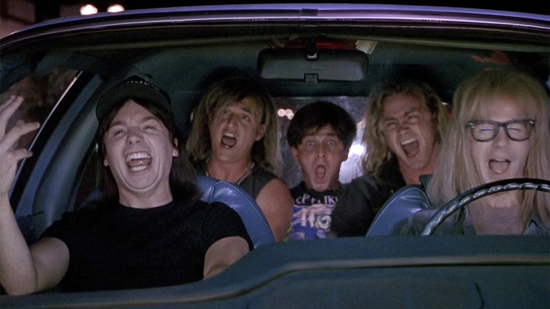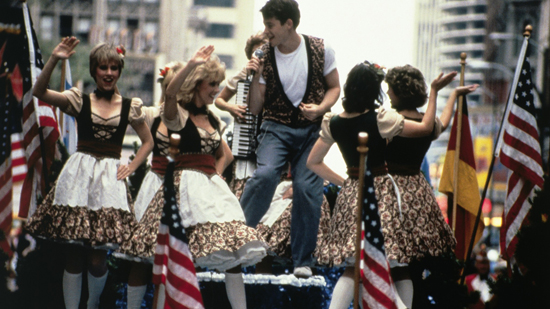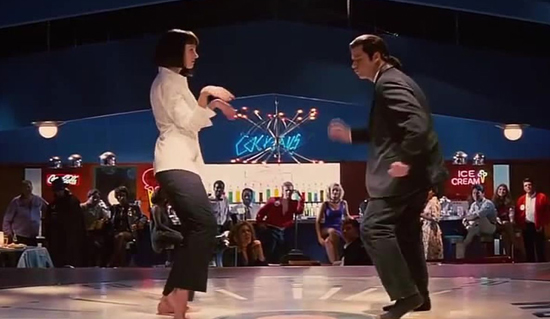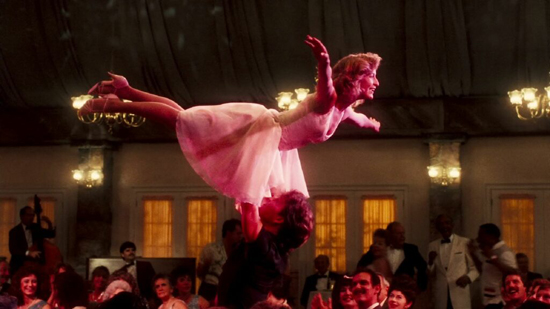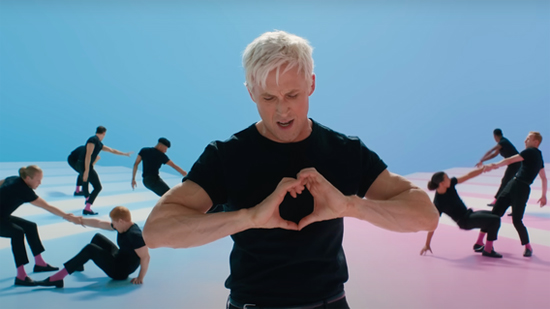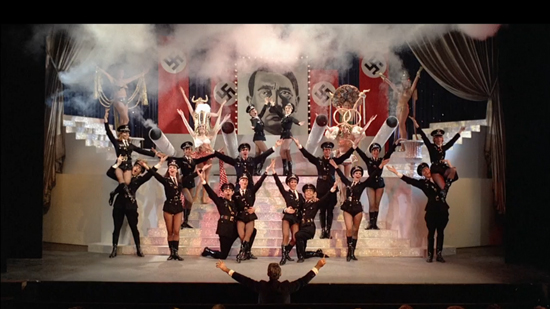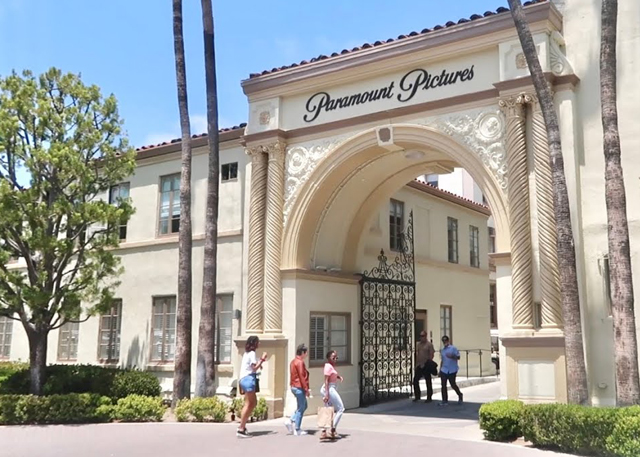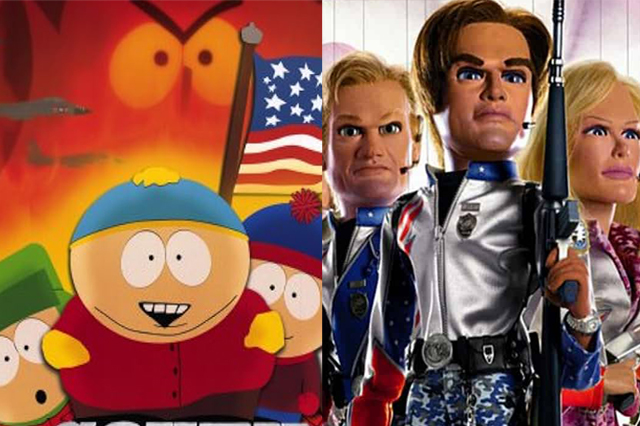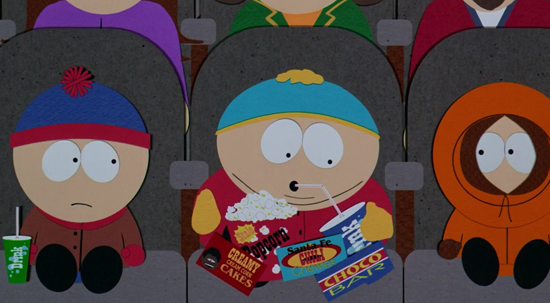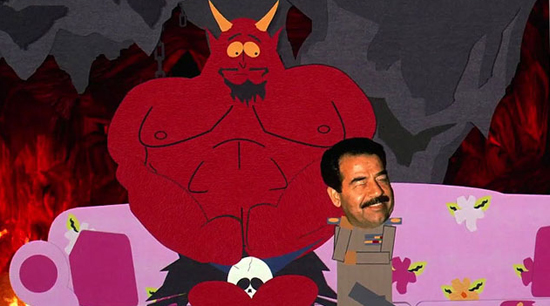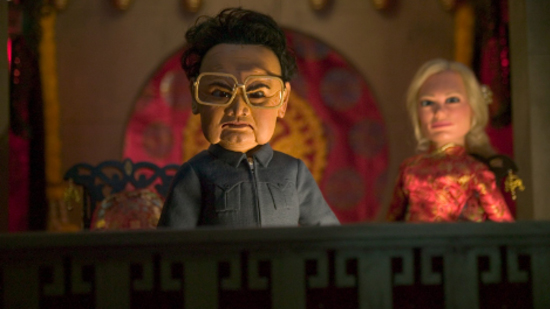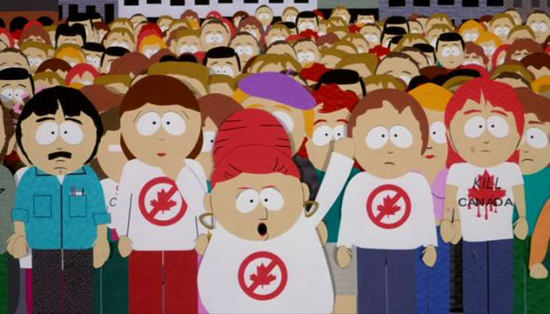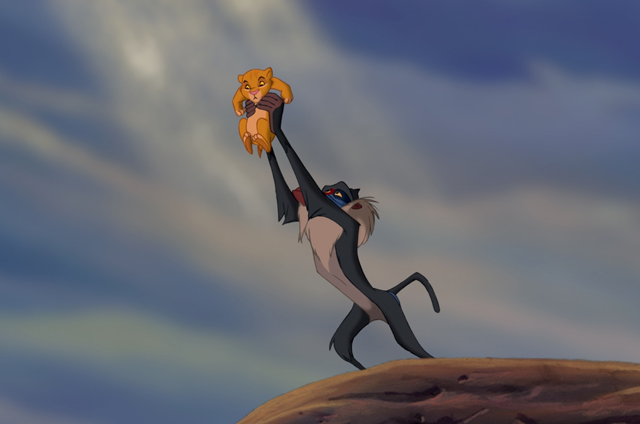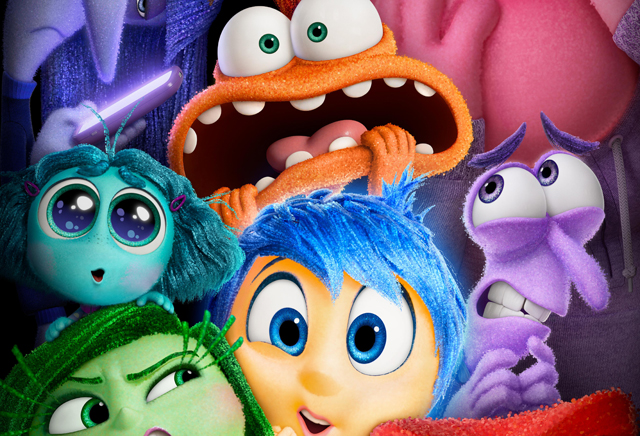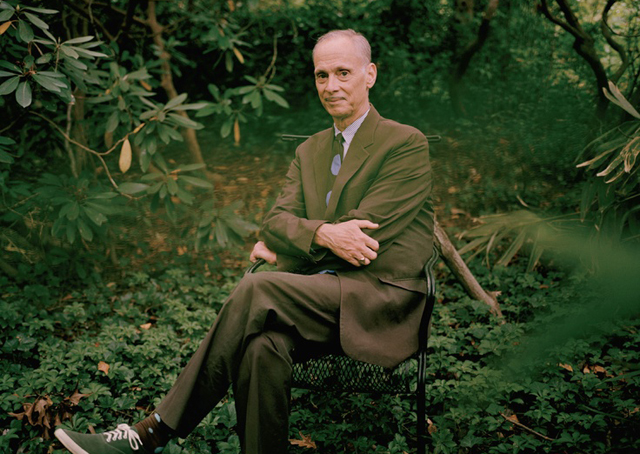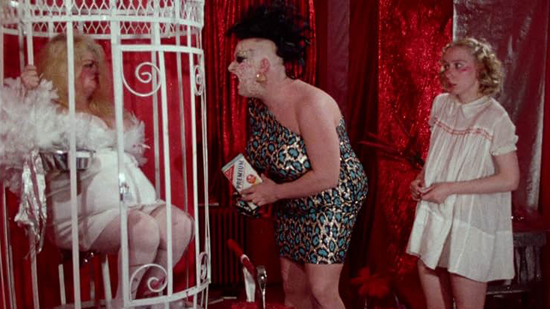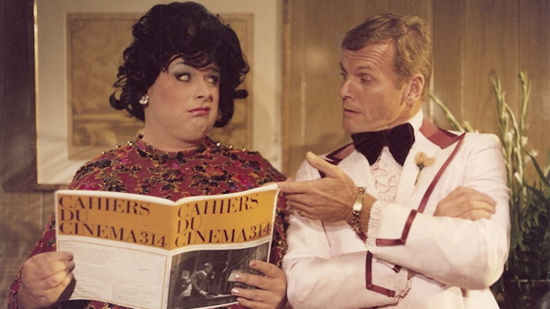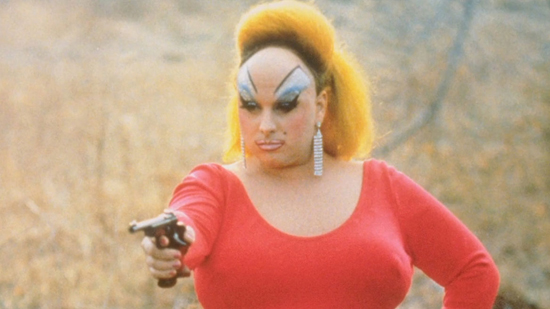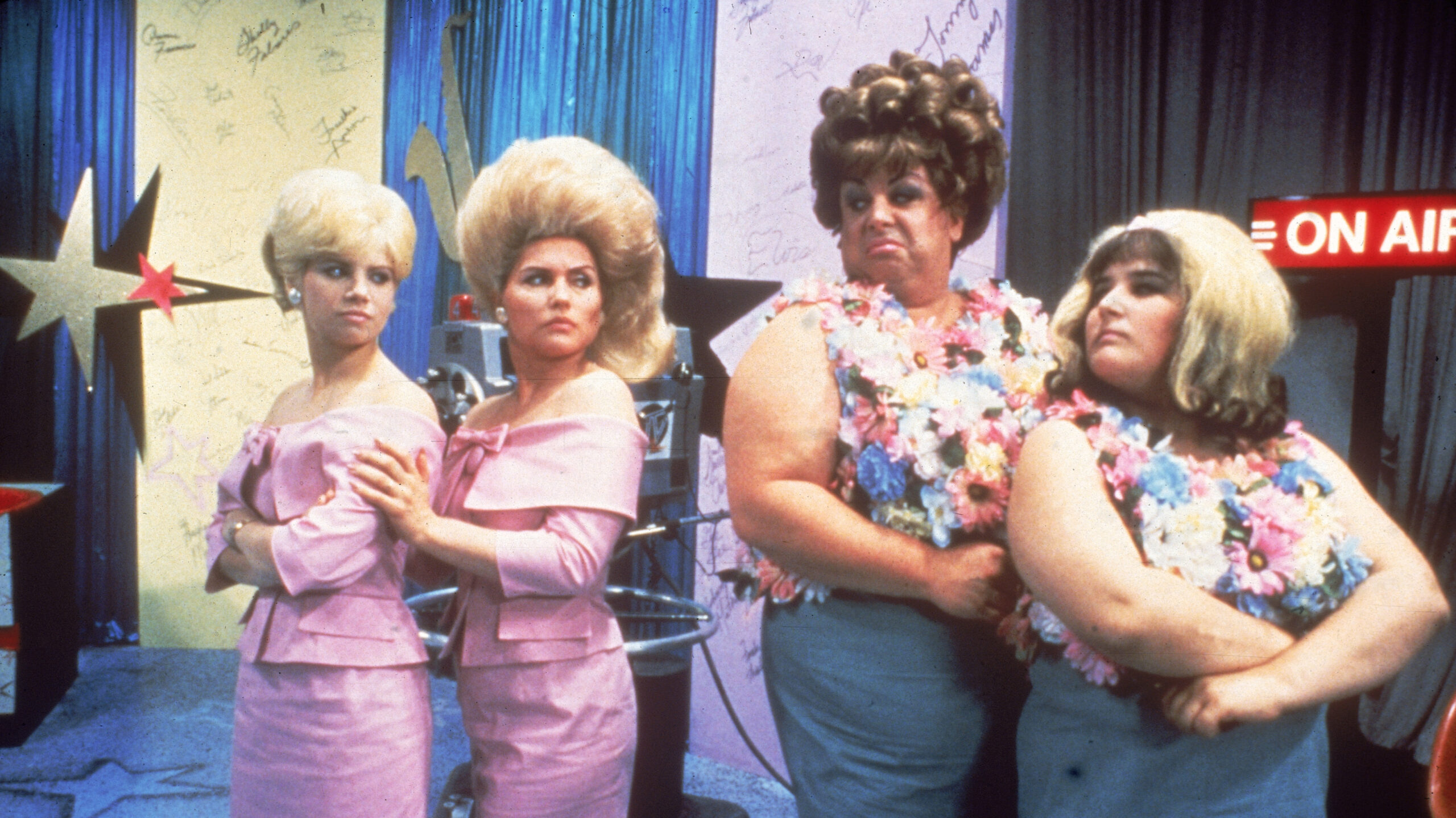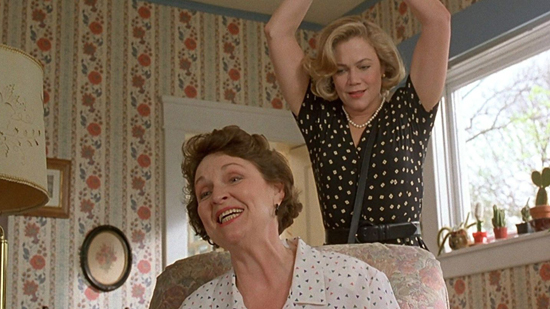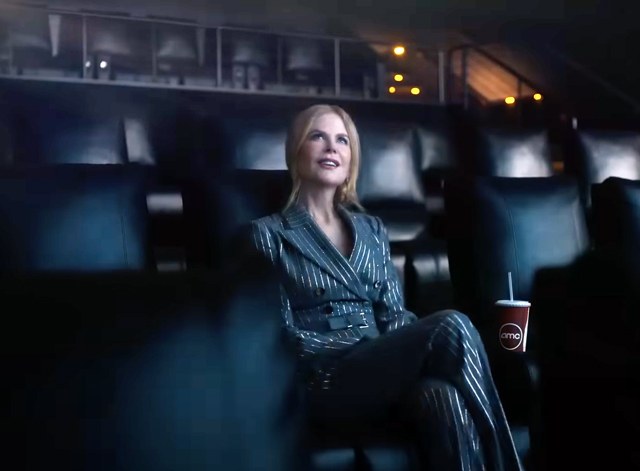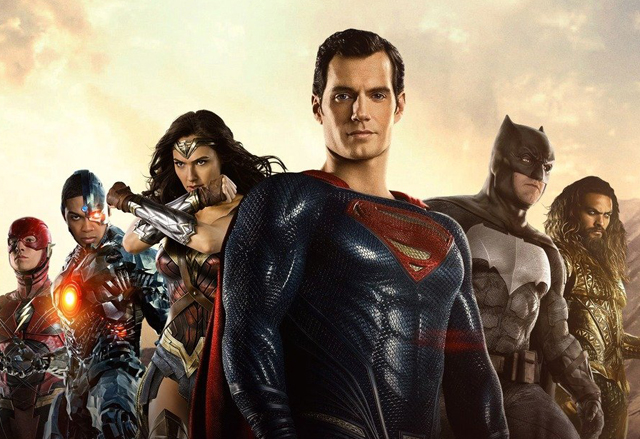
At the start of the year, I spotlighted the first half of what we know now as the DCEU, the DC Extended Universe. What started off as DC Comics answer to the record breaking success of the MCU showed promise early on, but as the years went on the wheels quickly began to fall off. It wasn’t just one problem that spelled the end for the franchise, but rather a string of bad decisions mixed with bad luck that quickly spiraled out of control and accelerated the demise that much quicker. What I pointed out in my look at the first half of this retrospective was that the franchise was built on a shaky foundation from the get go, with the Superman movie Man of Steel (2013) being too much of a narrative mess to work as the launching pad of what was supposed to be a multi-decade long connected cinematic universe. Even still, DC still managed to hit a home run with Wonder Woman (2017), the one time that people agreed that they made something equal to or even superior to a Marvel movie. DC also looked for a little bit like they were cooking and getting their formula down with surprise hits for Aquaman (2018) and Shazam (2019). But, there was one misfire that was hanging a cloud over the whole enterprise which was the doomed production Justice League (2017). Even the most die hard DC fans had a hard time defending the movie because it was so abundantly clear how the movie was mismanaged to death during it’s production. Marvel had already aced two Avengers films by that point, and were about to hit their high note only a year later with the dual threats of Infinity War (2018) and Endgame (2019). If DC couldn’t make their Justice League movie happen, then what was the point. But as we would see, there were far more monumental things around the corner that would put an end to the DCEU’s brief reign even more. As we look at the final stretch of the DCEU, we’ll see how world events collided with DC’s plans for the future, as well as how a sea change behind the scenes would point to the final days of this franchise in order to bring about a new future.

WONDER WOMAN 1984 (2020)
Directed by Patty Jenkins
Initially there was a lot of excitement leading up to the premiere of this Wonder Woman sequel. Both star Gal Gadot and director Patty Jenkins were returning, and the story was bringing us an unknown chapter in the heroine’s history, which was her formative years between WWI and when she finally joined the Justice League. Specifically, the movie set itself in the 1980’s, which was an interesting choice for the film as it made the movie very tonally distinct from the first film. Where 2017’s Wonder Woman was a more serious, war themed movie, Wonder Woman 1984 was more playful in keeping with the brighter, 80’s aesthetic. It seemed like Patty Jenkins drew a lot of influence from the Richard Donner Superman films, which were also from this specific time period. Like the Donner Supermans, WW84 has a bit more comedic slapstick thrown in with all the action set pieces. Unfortunately, this shift in tone was not welcomed very well by audiences. Many felt that it betrayed the spirit of the original and turned Wonder Woman into a less serious character. I’m one of the few that didn’t seem to mind this tonal shift, because I feel that Patty Jenkins did a strong enough job setting up that this was going to lean a bit more into the cartoonish aspect of this comic book world and setting the story in the 1980’s helped out with that. It does an effective job of feeling like it would be a comic book movie from the 1980’s, and in a good way; though I’m sure most others would feel different. There are some truly beautiful moments in the movie that go unappreciated, like the flight through the fireworks aboard an invisible jet. The inclusion of Pedro Pascal as the film’s scheming villain, Max Lord, was also a strong point of the movie. Sadly, Wonder Woman 1984 had it’s release massively affected by the pandemic, with it’s release pushed off of it’s original June 2020 date. Eventually, it got released on Christmas Day 2020, in a first of it’s kind hybrid theatrical and streaming release that would later turn into Warner Brother’s disastrous “Project Popcorn” plan in the following year. Overall, it’s a misunderstood film that sadly didn’t get the proper opportunity to prove itself.
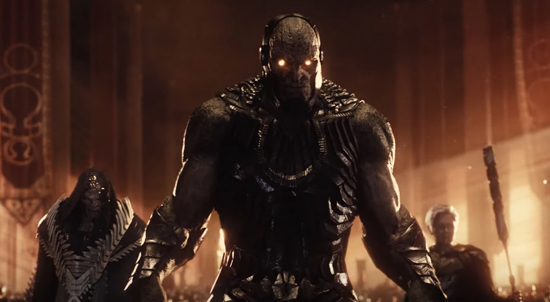
ZACK SNYDER’S JUSTICE LEAGUE (2021)
Directed by Zack Snyder
One of the unlikeliest resurrections in cinema history. When the original Justice League crashed and burned at the box office in 2017, rumors immediately rose about a mythical “Snyder Cut” still being housed in the Warner Brothers vault. While both WB and Zack Snyder insisted that there was no finished alternate cut of the movie, a movement still grew around wishing for Zack Snyder’s original vision for the Justice League movie to exist in any way. In a few short years, the #ReleasetheSnyderCut movement became too big to ignore, and sadly it also grew into something a bit toxic as well with the movement getting hijacked by bad faith players. Still, opportunity rose for an actual Snyder Cut to become a reality when Warner Brothers was looking for a buzz-worthy project to spotlight on their newly launched streaming platform, HBO Max. To everyone’s surprise, not only was Warner Brothers bring Zack Snyder back to complete his version of the Justice League, but they were giving him a $75 million budget for reshoots and CGI fixes, as well as bringing back whatever actors he needed. It’s mind blowing that Warner Brothers agreed to do this and invest so much money, given how poorly the original film was received. But, even in the midst of a raging pandemic, Zack Snyder was able to complete his Justice League, which ended up being a nearly double the original film in length. Was it any better? In most ways, yes. The visual effects were much improved, particularly with the villain Steppenwolf, who looked much better and less like the video game quality character he was in the first movie. Also, the extra two hours of story line helped to flesh out characters who were mostly trimmed out of the first movie. Ray Fisher’s Cyborg gets the biggest boost in character development, and you see from Zack Snyder’s cut of the film that he was actually supposed to be more of the main character, which makes the original film extra insulting as a result. But, a lot of Zack Snyder’s style over substance faults still persist, so while it’s definitely the superior version of this story, it’s still not a great movie overall. And at 4 hours long, it can be a slog to sit through. It’s hard to feel the excitement for a Justice League movie when it’s longer than Gone With the Wind (1939). Still, the Snyder fans got what they wanted, and perhaps the best thing about a “Snyder Cut” finally existing is that people no longer have to complain about it.
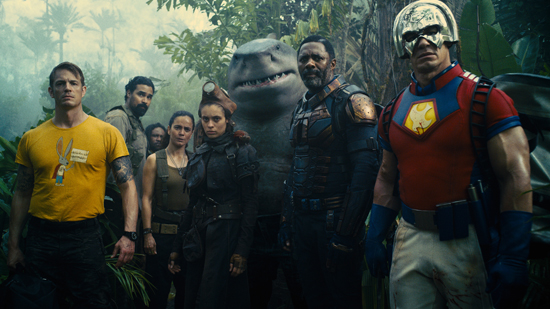
THE SUICIDE SQUAD (2021)
Directed by James Gunn
Here we have another example of DC seeking the help of a director from the Marvel camp to fix their broken franchise. Only in this case, the plan actually worked. DC snatched up James Gunn at the most opportune time, after Disney had foolishly rushed to terminate his employment at Marvel due to controversial jokes he made on Twitter. Marvel of course would manage to woo him back for one more Guardians of the Galaxy movie, but Gunn had already been welcomed fully into the DC community by then, and as it would turn out, it would soon become all his in a few short years. But what would James apply his unique style in the DC universe? Well, the answer seems pretty in character for a filmmaker who’s drawn to stories about outlaws and misfits. He would become the new voice behind the Suicide Squad franchise. David Ayer’s original was unfortunately a movie that suffered a lot of studio interference when Warner Brothers wanted to shift the movie to a lighter tone; ironically citing Guardians of the Galaxy (2014) as a reference. Now, they had the mastermind of the Guardians franchise, and you can bet that’s what they intended him to bring to the movie. Creatively, The Suicide Squad is a success on all levels. Gunn doesn’t miss a beat, bringing his trademark weirdness to the the story, only this time no longer burdened by a PG-13 rating, as this one was aimed from the get go as a hard “R”. Thankfully, he knew to keep the best elements of the Ayer version, and retained Margot Robbie as Harley Quinn, Joel Kinnemann as Rick Flag, and Viola Davis as Amanda Waller in his cast. The movie also had great additions to the cast like Idris Elba as Bloodsport, David Dastmalchian as Polka-Dot Man, and John Cena as Peacemaker, who also received his own spin-off series which is also amazing. And then there was the inclusion of King Shark to the movie (voiced hilariously by Sylvester Stallone) who is just a delight from beginning to end. But you just know that James Gunn’s top goal for this movie was to make Starro the main villain. A bizarre character like that could only be truly realized under James Gunn’s vision. Sadly, due to Warner Brother’s disastrous “Project Popcorn” initiative, which made their entire 2021 slate hybrid releases, Gunn’s The Suicide Squad didn’t get the box office success it deserved. But as fate would have it, Gunn’s time in the DC leadership was only just starting.
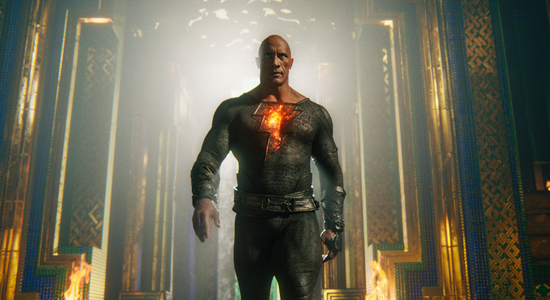
BLACK ADAM (2022)
Directed by Jaume Collet-Serra
Of all the movies in the DCEU, this is the one that probably had the longest development in total. Dwayne “The Rock” Johnson. There was talk of Johnson being interested in the role all the way back in 2007, long before the DCEU was even a thing. However, those plans kept being put on hold as DC was planning it’s course in the wake of Marvel’s rise with it’s cinematic universe. There wouldn’t be any traction for a project that would feature the famous DC rogue until 2017, when the Shazam movie started production. All the while, Dwayne Johnson still remained committed to the role, and over time as he began his own production company Seven Bucks, he was more involved in the actual development as well. While the pandemic postponed things even further, a Black Adam movie finally went into production with an intended release for Fall of 2022. Unfortunately, this film was coming at a shaky time not just for DC in general, but for comic book movies as a whole. For many fans, super hero movie fatigue seemed to finally be hitting in the post pandemic market. The once mighty genre was not pulling in audiences like it used to, though some of that may have been due to the pandemic affecting theatrical attendance. But, Dwayne Johnson remained confident in his Black Adam movie, and perhaps a bit too naïve. He defiantly said that his movie was going to shake up the entire DC hierarchy, which definitely came across a bit too cocky and self-indulgent, which wouldn’t be so bad if he had a great movie to back that enthusiasm up with. Sadly, Black Adam was not a great movie. It was by no means a terrible movie, but it also wasn’t game-changing either. One of the big problems was that Black Adam lacked any character. Sure Dwayne Johnson looked amazing in the suit and definitely felt like the character come to life, but the movie failed to make him interesting. The film is very by the numbers as far as comic movies go, and it feels like a waste of potential, especially with the inclusion of the Justice Society of America characters. Pierce Brosnan as Dr. Fate was an especially strong casting coup, but sadly he feels squandered too. The mediocre result of Black Adam, as it would turn out, would be the first really true sign that the end was near for the DCEU, and the following year would get worse.
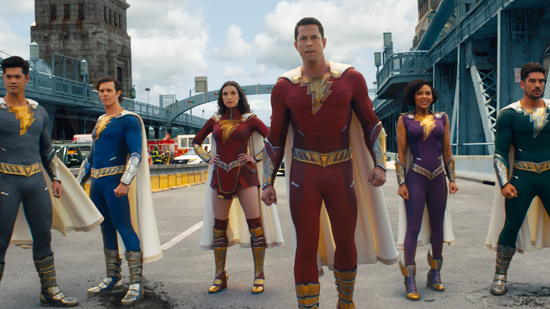
SHAZAM: FURY OF THE GODS (2023)
Directed by David F. Sandberg
In a year that in general very hostile towards comic book movies, both from Marvel and DC, this Shazam sequel seemed to have especially fallen victim to the increased audience apathy towards the genre. The film grossed a staggering low $57 million at the domestic box office, and it couldn’t use the pandemic as an excuse for it’s sluggish performance either. The days where even an obscure character like Shazam could become a success at the box office appeared to be over, as this movie made less in it’s entire run than what movies of it’s type used to make in their first weekend, and in some cases their first day. And it’s too bad, because Fury of the Gods is a pretty decent movie when you look at it on it’s own. Returning director David F. Sandberg managed to maintain the general sense of fun that the original Shazam film had and this sequel does what all good sequels do which is to build upon what worked in the original. I do like that the movie leans much more into the mythology behind the Shazam character, while at the same time finding ways to make those bigger elements feel at home in this sillier style of comic book story. In this movie, Billy Batson and family come across a trio of goddesses, played by Helen Mirren, Lucy Liu, and Rachel Zegler, all of whom are great additions to the cast. Zachary Levi also continues to work well as the titular super hero, bringing a great deal of funny moments to the movie. The one downside is that Asher Angel, the actor who plays Shazam’s de-powered alter ego Billy Batson, gets far less screen time this go around, which is a shame because his emotional arc was a highlight in the first movie. On the other hand, another star of the first film, Jack Dylan Grazer as Freddy Freeman, gets much more to do in this film and is definitely one of the highlights here. What makes this movie and the original film stand out among all the DCEU films is that they find the right balance between sincerity when it comes to the high stakes of comic book adventure, while at the same time knowing to keep things silly and colorful like a comic book usually does. This may have the reputation of being the DCEU’s biggest bomb, but anyone who looks at it outside of it’s box office numbers will see that it’s still an overall fun time.
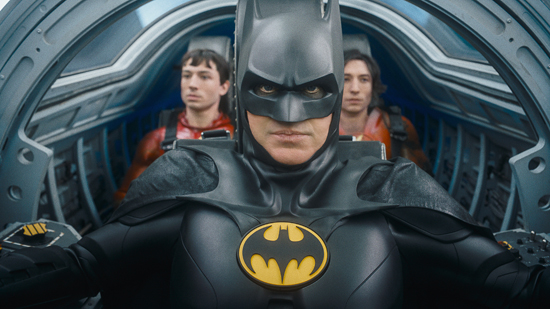
THE FLASH (2023)
Directed by Andy Muschietti
Perhaps the most cursed film in all of the DCEU. Everything that could go wrong with this movie did in fact go wrong, and more than any other film, this put the nail in the coffin of the DCEU, even though there were still two films still to go on the calendar. Things went bad for this movie even before super hero fatigue set in. While it was inevitable that a Flash movie would get made in the wake of the formation of the Justice League, getting it into production was a hassle from the beginning and never got better. The original director Rick Famuyiwa dropped out fairly early in 2016 and the film was left on hold for years while the film’s star Ezra Miller was busy working in the Fantastic Beasts franchise. In the meantime, numerous rewrites occurred, with numerous scriptwriters being hired to give the troubled project shape. Eventually, Andy Muschietti of the IT series fame was given the role of director and cameras finally started rolling in 2019. Unfortunately, the pandemic delayed things even more. And then in 2022, just as the movie was finally getting set to be finished, Ezra Miller got themselves involved in a string of scandalous, career ending crimes that unfortunately cast a dark cloud on the movie as a whole. At this point, Warner Brothers and DC had already invested well over $200 million dollars into this beast of a project, and now they had a movie that tied to a disgraced figure that was going to bring this movie bad press no matter what. What were they going to do? Put it in theaters and hope for the best or dump it quietly onto streaming and cut their losses. It ultimately was decided to go with the latter. There was some faint hope. Apart from the whole Ezra Miller of it all, the story was centered around a multiversal storyline based on the beloved “Flashpoint” arc from the comics. Here, just as with what Marvel was doing with their own venture into the multiverse, DC could mine from their past glories to have some fan favorite casting choices to fill their cast. The most exciting part of this movie was that it was going to mark the return of Michael Keaton to the role of Batman. In truth, seeing Michael Keaton as the Dark Knight, full rubber suit and all, is the one worthwhile thing in this movie. Everything else, sadly is not. Nothing could save this film from all of it’s backstage woes, and the film is a jumbled mess anchored, which Ezra Miller was ill-equipped to save. It makes things even worse when they have to play an alternate universe Barry Allen whose even more obnoxious. The movie tanked at the box office, and it was very soon after that DC threw in the towel, announcing that they were scrapping all future projects in the DCEU beyond that year, aiming for a full reboot. Sadly the sour taste of The Flash cast a cloud over the two films that remained, neither of which was nearly as bad.
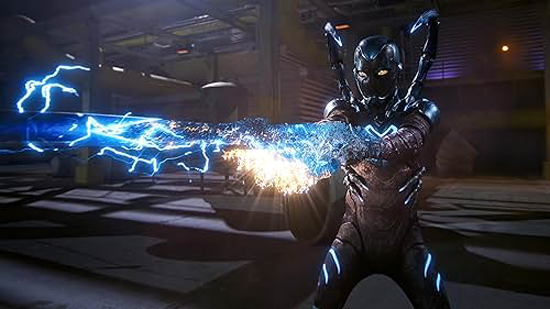
BLUE BEETLE (2023)
Directed by Angel Manuel Soto
The timing of this movie’s release could not have been worse. It released into theaters on the heels of the failure of The Flash, and to make things worse it had it’s publicity kneecapped by the ongoing Writers and Actors’ strikes of Summer 2023, and it had to compete against the juggernaut of the “Barbenheimer” phenomenon that was dominating the box office. Suffice to say, Blue Beetle did not perform well in theaters. But, the fact that it made it to theaters at all was a bit of a triumph in itself, as it was originally meant to be a direct to streaming release. The film was a bit of a milestone for the genre, because it was the first super hero film centered around a Latino main character. Though Blue Beetle has gone through multiple personas throughout the years in the comics, it was wise of DC to spotlight the Jaime Reyes version in his big screen debut, and to also lean heavily into his cultural heritage. While it is for the most part a formulaic super hero origin movie, it does do the right thing in making Jaime a likable and interesting character, and a lot of the success with the character has to do with the solid casting of Xolo Mariduena in the role. Xolo brings the right amount of physicality to the role, helped by his training working on the show Cobra Kai, but he also brings an innocent charm to the character as well, making him a bit of a goofball in addition to being a good fighter. What also helps to elevate the movie is that it makes all the members of the Reyes family just as important to the story as the main hero. Each one is a well defined character which is refreshing in a genre that sometimes doesn’t devote enough characterizations to it’s supporting players. Despite the movie not performing well at the box office, it has thankfully found a following on streaming and is generally well regarded by genre fans. It’s reputation has been salvaged so much that Xolo Mariduena is one of the few actors whose actually going to keep his role moving forward in the reboot of the DC Universe in the years ahead. That in a way is it’s own triumph, and a reflection that the movie stands well enough on it’s own as a solid entry into the super hero genre.
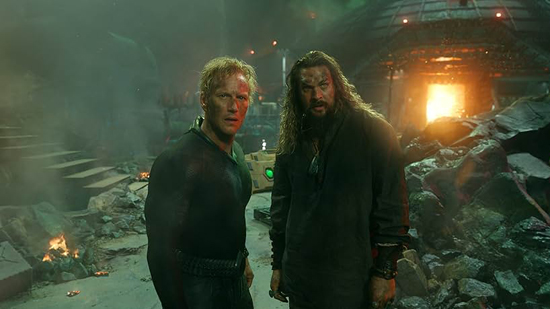
AQUAMAN AND THE LOST KINGDOM (2023)
Directed by James Wan
And here we come to the end of the road for the DCEU. Sadly, when this movie went into production, no one was anticipating this is where it would all end, so this standard sequel feels something like an anticlimax. Is Aquaman and the Lost Kingdom a sour note to end the DCEU on. Well, it’s not the worst movie that DC could’ve closed this chapter on. Lost Kingdom is a sub par sequel at best. It really feels like everyone in the film is just doing it because they were under contract. There isn’t a drive to have this movie prove itself and smash any expectations. I will say that it at least doesn’t feel as overblown as the first film. It keeps things simple, with Aquaman again being called upon to save the world like he always does, only this time he needs the help of his estranged half brother Orm the Oceanmaster (Patrick Wilson returning to the role). Another good thing is that Aquaman’s arch nemesis Black Manta is finally elevated to the main villain role this time around, and Yahya Abdul-Mateen II does a great job of making him an effective sinister force. But, like the first movie, the sequel also gets bogged down in unconvincing CGI environments that never feel real, and too many subplots just end up padding the film further. At least Jason Mamoa brings some buoyancy to the film, and he reminds you quite a bit why he was a great choice for the role in the first place. Overall, the movie ends the DCEU on a whimper with a barely passable final film, though it is far from DC at their worst. I get the feeling that the final scene of the movie was a late addition, with Mamoa picking up a microphone and yelling defiantly, “I am Aquaman,” in a mirror of the scene that started off the MCU with Robert Downey Jr. declaring “I am Iron Man.” That scene was probably added knowing that it was going to be the sign off for the DCEU, so what better way to end this Cinematic Universe than by copying how another began. DC has been accused of chasing Marvel all throughout the run of the DCEU, but they managed to do with this movie something that Marvel has yet to do, which is to close the book and start anew.
It’s hard to sum up the whole of the ten years of the DCEU. It can’t be seen as a complete failure, as it did produce some genuine hits like Wonder Woman and Aquaman. But it sadly was never able to completely escape the shadow cast by Marvel during that same time. It was also a franchise that suffered through a lot of bad luck and bad decisions. It was perhaps a bad choice from the beginning to use the Zack Snyder aesthetic to build the foundation of this franchise off of. And then the course correction during the making of the Justice League only made matters worse, and it gave the franchise a black eye that it never recovered from. And just when DC was starting to find it’s groove midway through, the pandemic disrupted all of those well laid plans, and the strikes made it near impossible to recoup soon thereafter. But, even with all that bad luck, there were some things that did work out for DC in the long run. They lucked out in getting James Gunn into their camp during his brief departure from Marvel. And now that he’s closed the book on his Guardians of the Galaxy trilogy in the MCU, he’s now back to DC to not only continue making movies with them, but to also steer the future of the franchise as a whole as DC’s new creative director. Effectively, he is now carrying on the same role at DC that producer Kevin Feige has had at Marvel all throughout it’s rise. Naturally, to begin this new phase of the DC universe, Gunn is going to bring a new take on the “man of steel” with next year’s Superman (2025), which he is directing himself. Hopefully it provides a stronger foundation than what the DCEU had. If anything, poor planning and envy were the main factors behind the downfall of the DCEU. But, over time, we may look back on the DCEU as a fascinating era of the comic book movie genre. It did give us plenty good to even great films. Some are even worth rediscovering like the Shazam films, or Blue Beetle, or Birds of Prey. If I had to single out my favorites, it would be the movies that embraced their quirkiness, which would exclude pretty much the whole Snyderverse side of the franchise. James Gunn’s Suicide Squad is objectively the best one, but it also kind of stands on it’s own. For a purely great DCEU style film, I feel Shazam was the movie that came closest to hitting all the right marks. Hopefully history will recognize the best that the DCEU had to offer, because there were definitely gems hidden amongst all that sludge.
